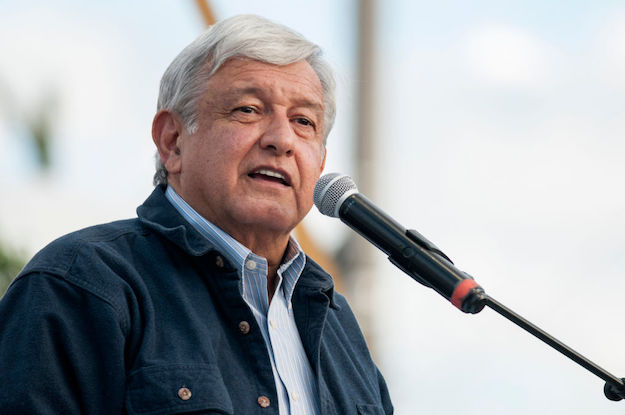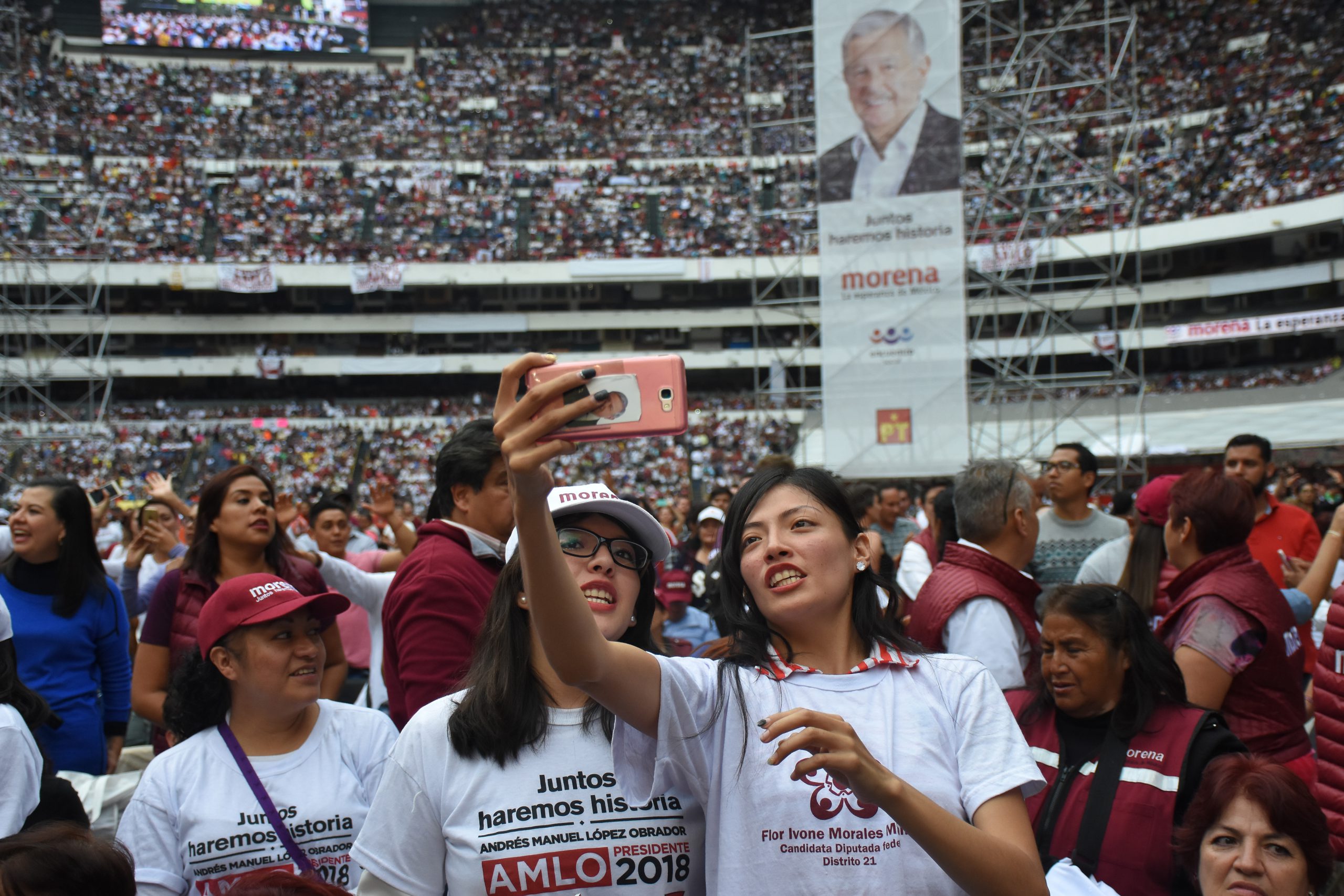Almost as startling as Andrés Manuel López Obrador’s lead in the race to become Mexico’s next president is the speed with which the party he founded just four years ago has risen to national prominence.
Following legislative elections in 2015, López Obrador’s National Regeneration Movement, or Morena, had just 35 seats in Mexico’s 500-seat lower house, and zero senators. Now, some polls predict that Morena and its allies could win an absolute majority in both houses of Congress on July 1.
That AMLO is not just winning but apparently dominating his competition reflects just how eager Mexican voters are for change – since the transition to democracy in 2000, two PAN governments and the return of the PRI through President Enrique Peña Nieto have left the electorate dissatisfied and many believing that, despite the risks, AMLO can’t make things any worse.
That line of thinking is understandable, given the endless corruption scandals and runaway violence of the last six years. But it is also wrong. The change promised by López Obrador and the rise of Morena is less a fresh start than a return to the bad old days of the PRI. And that, certainly, could make things worse.
Morena’s star has risen so quickly because it offers refuge to such a wide range of beliefs and ideologies. The party has room for old guard supporters of Hugo Chávez and Fidel Castro, young leftist academics, former PRI leaders, evangelical Christians, actors, athletes, and even the odd business tycoon or two. In this way the party resembles the big tent of the PRI, which more than a guiding philosophy was guided by the administration of political power. Morena is not a party in a traditional sense – its cohesion depends entirely on the figure of López Obrador.
Here, AMLO resembles the PRI presidents of the 1960s and 70s, who at the time exercised absolute control over the country. The PRI eventually learned to moderate the impulse to presidential authority. But AMLO and others who left the party in the 1980s (López Obrador was a PRI member until 1988) still appear attached to the old way of doing things.
This authoritarian streak has been on display throughout AMLO’s political career – including when he took control of the PRD, another of his former parties, in becoming mayor of Mexico City in 2000. AMLO was comfortable in the PRD so long as he was its only expression of authority. This is a big part of what concerns AMLO’s detractors, and is a mindset that may prove especially problematic in the absence of a Congressional counterweight and in a country that only recently began to build democratic institutions.
The second cause for concern about the reality of an AMLO presidency is his broad economic vision, which also appears pulled from the worst days of the PRI.
AMLO has said that he would like to return Mexico’s economy to the way it was in the 1960s. In particular, he has advocated for a move toward self-sufficiency in food production and expresses doubt over foreign involvement in Mexican industries, including oil and gas. (This populist affection for autarky is similar to that of Donald Trump, though AMLO’s interest in social welfare and reputation for personal probity don’t apply to the U.S. president.)
But the world economy today is far different from the global economy of the 1960s, when the international financial system centered on the Bretton Woods agreements. Then, fixed exchange rates relative to the dollar, which was backed by gold, and practically no international movement of capital meant that countries like Mexico did indeed need to be relatively self-sufficient. In 1960, that meant that Mexico produced almost everything it consumed, from energy to food, and even domestic appliances. With a population of around 40 million, that was possible. But by 1980, with a population twice that size, it was no longer viable.
Still, throughout the 1970s, Mexico’s government tried to pursue a closed economy, aiming for self-sufficiency in food and energy with a strong public role in the productive sector. The Mexican government became the owner of every kind of firm, from cactus producers to hotels and bars to movie theaters, in addition to its traditional control of energy, telecommunications, steel and the entire utilities sector. But that approach failed to produce sustainable economic prosperity, and ultimately contributed to the 1982 debt crisis that paved the way for Latin America’s lost economic decade.
If AMLO has an affinity for the PRI of old, perhaps it’s not that surprising. He was born in 1953 and came of age as many of these policies were in place. He was a PRI member well into the 1980s, breaking with the party only after overt electoral fraud denied the presidency to Cuauhtémoc Cárdenas, the son of former President Lázaro Cárdenas (one of AMLO’s idols), who in 1988 had run against the PRI from the left. It was after this that AMLO joined Cárdenas to found the PRD, which would represent Mexico’s left for the next 20 years.
After losing the presidential race in 2012, AMLO left the PRD and began assembling a coalition of groups willing to subordinate themselves to his leadership. Many of the willing have come from the PRI itself. The party that ruled Mexico for more than 70 years is today wholly discredited among Mexican voters who are fed up with corruption and crime. Its presidential candidate, José Antonio Meade, is nearly 30 points behind López Obrador in the polls and its position in Congress is deteriorating rapidly. Hundreds of local PRI leaders, reading the political tea leaves, have deserted for Morena.
As a result, the political transformation that now seems almost sure to take place on July 1 is not just about the arrival of López Obrador, but something more: it is the collapse of a political party that determined Mexico’s fate for nearly a century. Whether it is replaced by a carbon copy, or something more democratic, remains to be seen.
—
Schettino is a professor at the School of Government at Mexico’s Monterrey Institute of Technology and Higher Education. Follow him on Twitter @macariomx.








